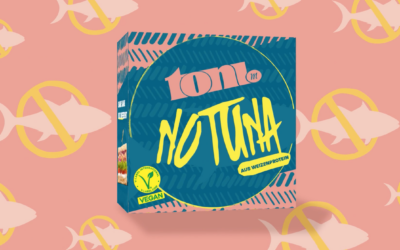What do “halal” and “haram” mean?
In the Islamic community, the Koran and the traditions of the Prophet Mohammed identify the way of life of a Muslim in two categories: “Halal” that means “what is allowed”, and “Haram” that means “not allowed”. These two terms apply to all aspects of a Muslim’s life, including food and items as diverse as cosmetics, personal care and cleaning products. It is estimated that 70% of all Muslims worldwide follow the Halal principles (Minkus-McKenna).
In general, all foods are considered halal with the exception of the following:
- pork and its by-products
- Animals that were not properly slaughtered or ones killed before slaughter
- animals that were not killed in the name of Allah (e.g. by non-Muslims)
- Alcohol and intoxicants
- Carnivores, birds of prey and land animals without outer ears
- Blood and blood by-products
- Foodstuffs contaminated with one of the above products
Example based on Islamic animal slaughter
Eating in Islam is a form of worshiping God (Allah) like prayer. The list of banned food products is quite extensive, but there are some prominent topics. First, the slaughter of animals must be done by a Muslim by making a cut through the carotid artery while saying the name of Allah. Then, after the animal dies quickly, it has to be skinned and cleared of all blood.
(Similar to the Jewish tradition “Kosher”)
Second, the use of animal by-products is strictly prohibited. Animal by-products are products that are taken from or extracted from the body of an animal. Examples of some animal by-products are blood, gelatin, and processed milk products (which contain animal enzymes and proteins), with the exception of milk, which is considered as halal.
How AR City Media Can Help You
We would be happy to advise you on the subject of “Halal”. Open up new marketing strategies and pave the way for almost 10 million new prospective!
We as a German-Turkish ethno-marketing agency are predestined for this and are characterized by experience and proximity to the target group.
We speak the language of your customers and we really can connect with them. Advertising in German, Turkish, Arabic and English are our core competencies.
We check your products or your launch strategy and tell you whether they are suitable for the Muslim market or not.
Please feel free to contact us, we look forward to hear from you!
Halal Check
We take a close look at your products and help you with the evaluation.
Launch Strategies
We will help you and happily advise you on your business idea.
Consulting
We will find the right people with a migration background and / or language skills for you.
Social Media
We text, design and manage your advertising in different languages.
Contact Us
About Us
The Data, Facts and Answers
Why is it better to invest in the Halal market today than tomorrow?
5 million Muslims, 200,000 Jews and8.5 million vegetarians and vegan are a clear answer to the question.
Which Products Should Manufacturers Consider?
Therefore, manufacturers who want to produce for this market can choose from a wide range of products that can be brought onto the market. These include halal gelatin for baked goods, shortenings, jellies, ice cream, yoghurt, cheese with microbial enzymes instead of animal enzymes, and ready-made meals that were not prepared on the same grill as pork or other Haram foods. As already mentioned, the Muslim population in Germany has a relatively large and growing purchasing power.
According to estimates, they have around 400 companies in Germany that offer Halal products generated approximately five billion dollars. However, they were hardly sold in German shops, but in around 10,000 Turkish and Arabic supermarkets that exist in the Federal Republic.
Producers who enter this market sooner rather than later also profit from it sooner than later.
Who Buys Halal Food?
Although Muslims are required to eat halal-certified foods, there are other consumer segments that may be interested in these foods. For example, since the use of animal by-products in halal foods is prohibited, vegetarians and vegans who avoid meat products make up a large part of the potential target market. For the same reason, halal foods are a good alternative for people with specific allergies to animal by-products.
This is what successful halal marketing can look like!
Our long-time customer “Eurogida” shows it.
In this case: from Muslims to all Germany!
We are a big family!
Find out more on our Blog
Monthly updates and more on the subject of ethno marketing
Eurogida Expandiert
Eurogida und AR City Media pflegen seit langen Jahren eine sehr erfolgreiche Partnerschaft. Wir freuen uns, die größte türkische Supermarktkette in Berlin mit vielen Kommunikationslösungen begleiten zu dürfen. Eurogida expandiert – und wir finden immer wieder neue Tools, mit denen wir die Marke unterstützen. Jüngstes Beispiel: das gut 1-minütige Animationsvideo, das auf Social Media, auf YouTube und auf der Website Eurogida als „One-Stop-Shop” neu positioniert.
Ethno-Marketing für das Einrichtungshaus Ostermann
Mit dem Möbelspezialisten Ostermann aus Nordrhein-Westfalen pflegen wir bereits seit einigen Jahren eine sehr erfolgreiche Partnerschaft. Das Traditions-Einrichtungshaus hat die Zeichen der Zeit erkannt. Ostermann ist mit seinem Tochterunternehmen „Trends” nicht nur auf Social Media aktiv, sondern setzt dabei auch erfolgreich auf Ethno-Marketing.
Toni M. Animationsvideo
Hallo Toni M., Du Thunfisch ohne Fisch! Wir wollen es ja alle und viele gute Gründe sprechen dafür: auf Fleisch und Fisch verzichten! Doch während es mittlerweile jede Menge Fleischersatzprodukte im Lebensmittelhandel gibt, sieht es beim Fisch noch etwas magerer...




